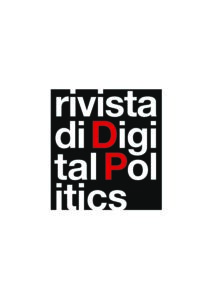Call for Paper
Digital Twins
Tra le frontiere più avanzate della innovazione digitale, i Digital Twins (“gemelli digitali”) investono i modelli e i sistemi di gestione e interazione con la realtà sociale e politica che ci circonda. Questa tecnologia emergente non si limita a rappresentare entità materiali, che siano costruite o naturali, ma si estende anche a processi, organizzazioni e persone, riproducendo dinamicamente tutte le caratteristiche dell’entità rappresentata attraverso l’aggiornamento costante dei dati in tempo reale.
—
Digital Twins
One of the most advanced frontiers in Digital Innovation, “Digital twins” affect models and systems for managing, and interacting with, the social and political reality around us. This emerging technology is not limited to representing material entities, whether built or natural, but also extends to processes, organizations, and even people, dynamically reproducing all the characteristics of the represented entity by constantly updating data in real time.
Oltre ai focus indicati, per tutte le call for paper verranno prese in considerazione submission (saggi o web reviews) sui diversi temi della digital politics.

Digicracy II
1/2024
-
- Valentina Reda,L’Ai digital education e la sfida della (iper)personalizzazione
- Luigi Rullo, (Open)Ai saga
- Gianluigi Spagnuolo, Artificial intelligence and the end of administrative proceedings
- Daniele Battista, Comunicazione politica e intelligenza artificiale: un bilancio tra partecipazione e manipolazione
- Michele Barbieri,A subtle hypocrisy: insights into Italian politics’inertia on the counter-disinformation policy
- Camilla Volpe, Guido Anselmi, Vincenzo Laezza, Social sanctions during disasters. The Italian case of coronavirus on Twitter
- Sara Concetta Santoriello, Agostino Stavolo, La mobilitazione digitale dei millennial. La comunicazione politica di Elly Schlein dal 2013 al 2023

